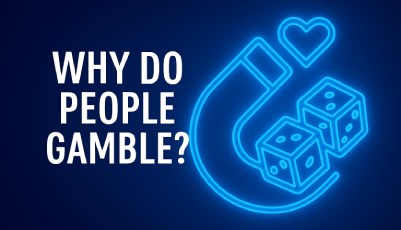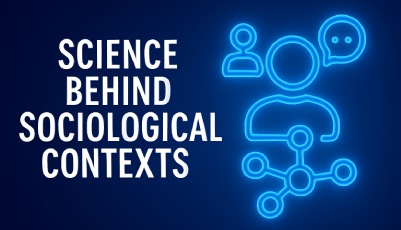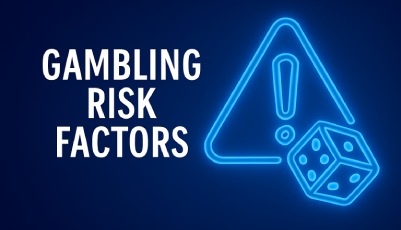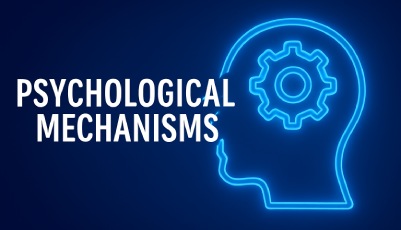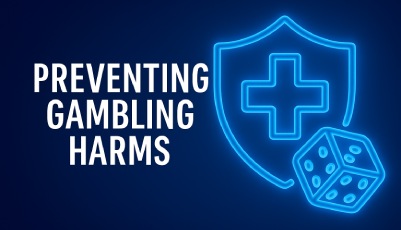Social identity is a critical aspect in an individual’s gambling behavior and personal decision making. Their preferences, understanding of the risks of gambling, motivating factors and even their betting frequency can all be connected to their social identity. This identity is also shaped by the individual’s peer groups, perceived social norms, and where they fit into those brackets.
Peer networks and the cultural communities in sports betting hold a great influence over the individual, and in this article, we will analyze the documented impacts from respected peer reviewed case studies.
Role of Social Identity in Making Gambling Decisions
A signficant part of the group identity is created from the online cultures and communities, which was examined in a 2021 study published in Computers in Human Behavior. The case study looked at individuals who were, to varying degrees, immersed in gambling related groups online, and the findings suggested that individuals who strongly identified with these groups also had a larger tendency towards high risk gambling behavior.
“Group identity served as both a motivator for gambling and a lens through which outcomes were interpreted.” – Savolainen et al., 2021
Another study, published in 2014 in Frontiers in Psychology, looked at the gambling among sports fans. The definition of sports fan here being the individuals who follow and identify with specific teams or players. The fans had a higher level of betting activity during games in which their preferred teams or players were involved. This sense of backing, or supporting, a team has an influence of emotional investment, which adds another layer to the betting itself. The wagers are not just financial investments or decisions inspired by the user’s knowledge of the team and sport, but they also carry an element of group support or loyalty towards their team.
“The stronger the fan identification, the more likely individuals were to perceive betting as part of their support for the team.” – Foster et al., 2014
Within the social identity, it also bonds individuals with like minded fans, creating a community with a shared identity. It can also induce adverse effects on the individuals, such as a heightened frequency or staking more to strengthen their loyalty within the group.
Online Gambling Communities vs Sports Fan Betting

The 2021 study investigated online poker forums and eSports betting communities in addition to sports bettors, and found that, universally, communal validation of betting creates a feedback loop. Gambling, for these communities, is a means through which individuals mark their belonging within the peer group, and this encourages users to spend more and gambling more frequently. Members praising the bolder risks and downplaying losses extends this feedback loop of reinforcing risk taking behaviors.
“Online environments amplified normative pressure, making risk-taking behavior both a personal and communal act.” – Savolainen et al., 2021
The 2014 study also researched the effects of live sports betting among sports fans, and it found that this type of gambling drastically intensified the emotional engagement of users. The fear of missing out, collective gambling rituals, and the enhanced adrenaline levels of watching sports induce greater spending and more reckless behaviors in individals.
The Social Identity Theory, which states that people build self-esteem in regard to their status within groups, aligns with this heightened risk taking when betting on sports live. The greater emotional investment acts as a bonding device and amplifies the adverse impacts this has on a bettor’s decision making and rationale.
Analyzing the Psychological Models and the Link
There are two important psychological models to be explored in regard to these case studies. The first, is the Social Identity Theory. It explains how people view themselves through their status or standing in their own peer groups. If those networks indulge in gambling or have a positive and encouraging stance on sports betting, these behaviors are publicly validated and the individuals feel it is a means through which they can uphold or enhance their standing within the peer group.
The other model is the Normative Social Influence theory. Groups that encourage gambling do not only validate the activity, but it can be perceived by individuals as a way to gain approval in these peer groups. Rejecting gambling, or any other activity that is perceived as a form of social currency, is taken as social rejection, and will either alienate the individual or cut them off from the group entirely. The individual has to choose between adopting these behaviors and risk conflicting with their own stance, or face potentially distancing them from the group dynamics.
Our Findings Comparing the Case Studies
The comparison of these studies show how social identity is greatly influenced by group dynamics, and gambling behaviors are not purely individual. In fan based communities, it is a part of the group dynamic and creates a sense of the collective, potentially compromising an individual’s own view of gambling and risk taking. Within greater online or peer communities, the loyalty aspect of gambling is not as prevalent, but in turn, it is seen as an activity that strengthens a user’s status within the groups.
Both studies highlight the harms that social groups can have on social identity where gambling is concerned, and it becomes clear that to reduce harm, gambling education strategies must target these group dynamics and not just teach the importance of personal self control.
FAQs
Strong group identification can make individuals adopt gambling behaviors aligned with group norms, even when those behaviors are riskier than what they’d choose alone.
Not necessarily, online communities amplify peer validation, while live sports environments tie gambling to emotional, real-time experiences.
Research suggests betting becomes an expression of loyalty. Fans perceive wagers as part of supporting their team, which reinforces both emotional and financial investment.
Yes, creating in group norms around responsible gambling can leverage the same social dynamics that encourage risk taking but redirect them toward safer behaviors.
References
Online social identity and gambling behavior in digital communities. Computers in Human Behavior ina Savolainen et al. (2021)
Sport fan social identity and gambling behavior: A psychological perspective Dawn W Foster et al. (2014)
